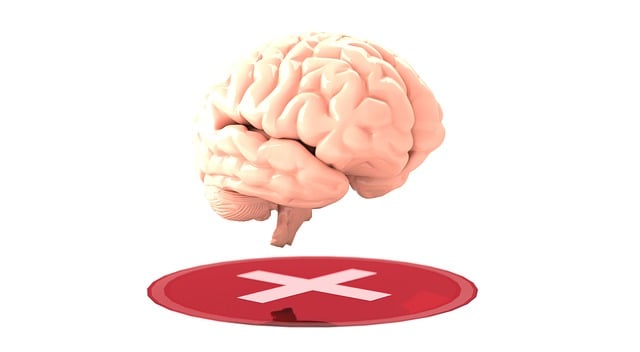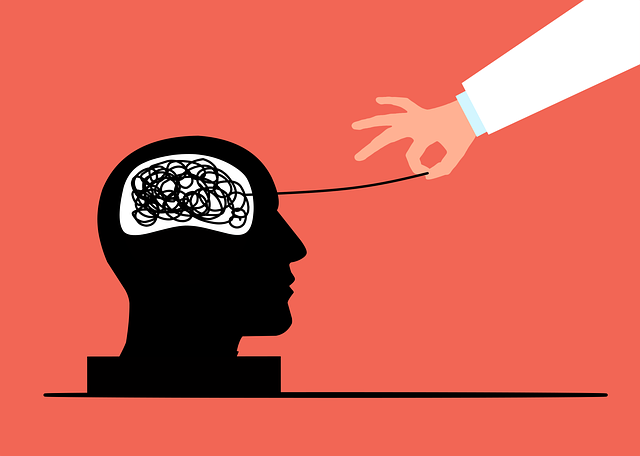Broomfield Phobias Therapy offers a comprehensive mental health education program focusing on emotions, thoughts, and behaviors. It begins with simplifying complex concepts, promoting empathy, and encouraging self-reflection to create safe spaces for emotional discussions. Interactive workshops, engaging resources, and peer support normalize conversations about mental health. The program incorporates evidence-based practices like cognitive behavioral therapy (CBT), case studies, role-playing, group discussions, and mindfulness exercises to build resilience and long-term coping strategies. By tailoring curricula to include relevant topics like stress management and problem-solving, it empowers individuals with applicable insights for daily life, reducing stigma and encouraging early intervention.
Mental health education programs play a pivotal role in fostering well-being and tackling societal stigma. This article delves into the intricate process of designing such initiatives, using the Broomfield Phobias Therapy Program as a case study. We explore ‘Understanding Mental Health’ as the cornerstone for educational programs, followed by strategic curriculum design and implementation strategies. By examining this evidence-based approach, we aim to empower educators and communities to create impactful mental health education, ultimately improving access to care and outcomes, mirroring the success of the Broomfield Phobias Therapy Program.
- Understanding Mental Health: Creating a Foundation for Education
- Designing Effective Program Curricula and Activities
- Implementing and Evaluating the Broomfield Phobias Therapy Program
Understanding Mental Health: Creating a Foundation for Education

Mental health is a vital aspect of overall well-being, encompassing emotions, thoughts, and behaviors that affect our daily lives. Understanding this intricate landscape is the cornerstone of any effective education program, especially when addressing issues like phobias (Broomfield Phobias Therapy). By creating a comprehensive foundation, educators can facilitate meaningful conversations and dispel myths surrounding mental health. This initial step involves simplifying complex concepts, promoting empathy, and encouraging self-reflection to foster an environment where individuals feel comfortable discussing their emotional well-being.
Through interactive workshops, engaging resources, and peer support, the program can build a solid framework for learning. Incorporating techniques from public awareness campaigns and focusing on emotional well-being promotion can help normalize conversations about mental health. Additionally, emphasizing self-esteem improvement through various activities enables individuals to develop resilience and coping strategies, fostering better mental health outcomes in the long term.
Designing Effective Program Curricula and Activities

Designing an effective mental health education program requires a thoughtful approach to curricula and engaging activities. At the core of a successful program lies content that is both comprehensive and accessible, catering to diverse learning styles. Incorporating evidence-based practices, such as cognitive behavioural therapy techniques, can empower individuals to manage their mental well-being effectively. For instance, addressing specific phobias, like those treated by Broomfield Phobias Therapy, through case studies and role-playing scenarios allows participants to develop practical coping strategies.
Beyond theoretical knowledge, activities that foster resilience building and coping skills development are instrumental. Interactive workshops, group discussions, and mindfulness exercises can create a safe space for exploration and learning. Encouraging open conversations about mental health reduces stigma and promotes early intervention. Tailoring the curriculum to include relevant topics like stress management, emotional regulation, and problem-solving skills ensures that participants gain actionable insights applicable to their daily lives.
Implementing and Evaluating the Broomfield Phobias Therapy Program

Implementing and evaluating the Broomfield Phobias Therapy Program requires a structured approach that combines evidence-based techniques with innovative strategies. The program aims to help individuals overcome specific phobias through a multi-faceted approach, incorporating both cognitive behavioral therapy (CBT) and empathy building strategies. By teaching participants effective self-care practices and focusing on self-esteem improvement, the Broomfield Phobias Therapy Program not only addresses the symptoms but also fosters long-term resilience and emotional well-being.
Regular assessments and feedback mechanisms are integral to the program’s success. These evaluations allow therapists to tailor interventions based on individual progress, ensuring that each participant receives personalized support. Through ongoing monitoring, the program can be refined to enhance its effectiveness, making it a dynamic and responsive resource for those seeking phobia management and mental health improvement.
Mental health education programs, such as the Broomfield Phobias Therapy initiative, demonstrate the power of comprehensive curriculum design and practical implementation. By establishing a strong understanding of mental health fundamentals, educators can create engaging and effective learning experiences. The success of the Broomfield program highlights the importance of tailored activities and continuous evaluation for optimal impact. This approach ensures that students not only gain knowledge but also develop essential coping strategies, fostering a healthier and more resilient community.









